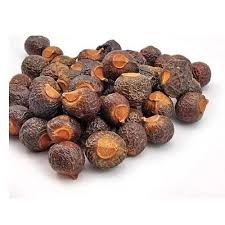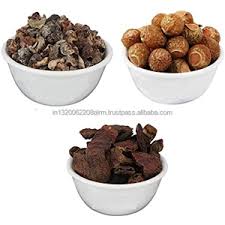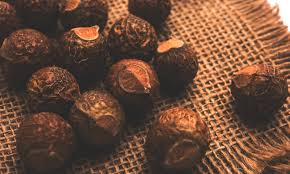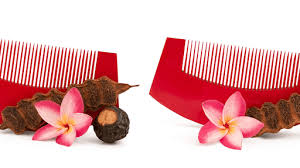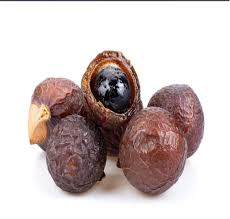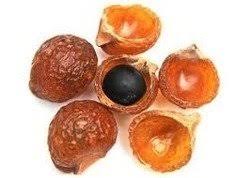
How Babchi Seed Can Help in Treating Skin Fungal Infections
Skin fungal infections are becoming increasingly common due to lifestyle changes, pollution, and weakened immunity. Conditions like ringworm, athlete’s foot, tinea, and candidiasis can cause discomfort, irritation, and visible skin damage. While modern treatments exist, they often provide temporary relief and come with side effects.
At Dirghaanshi, we believe in nature’s healing power. One ancient herb that has shown remarkable results in treating skin fungal infections naturally is Babchi Seed (also known as Bakuchi or Psoralea corylifolia). Used for centuries in Ayurveda, Babchi is known for its antifungal, antibacterial, and anti-inflammatory properties.
In this blog, we will explore how Babchi Seed works against fungal infections, its benefits, application methods, precautions, and why it is a must-have in your natural skincare routine.
🌱 Long Description: How Babchi Seed Can Help in Treating Skin Fungal Infections
🔬 What is Babchi Seed?
Babchi Seed, scientifically known as Psoralea corylifolia, is a potent herb widely used in Ayurvedic, Unani, and Chinese medicine. The seed is packed with natural compounds like:
Bakuchiol – a powerful antifungal and anti-inflammatory compound.
Psoralen – helps with skin regeneration and pigment correction.
Flavonoids & Essential oils – aid in skin healing and immunity boost.
Its effectiveness in treating skin issues like eczema, vitiligo, psoriasis, and fungal infections is well-documented in holistic healing systems.
🦠 Understanding Skin Fungal Infections
Fungal infections occur when fungi overgrow on the skin due to:
Moist environments
Poor hygiene
Weak immune function
Wearing tight or synthetic clothing
Common symptoms include:
Itching and redness
Circular rashes or patches
Scaly, cracked, or peeling skin
Foul odor (in some cases)
🌿 How Babchi Seed Helps in Treating Fungal Infections
✅ 1. Natural Antifungal Agent
Babchi Seed has strong antifungal properties that fight against common fungi like Candida albicans, Trichophyton, and Microsporum. It destroys fungal cells and prevents recurrence, making it highly effective for skin infections.
✅ 2. Reduces Itching and Inflammation
Its anti-inflammatory action soothes irritated skin, reduces redness, and relieves persistent itching associated with infections.
✅ 3. Promotes Faster Skin Healing
The antioxidants and vitamin-like compounds in Babchi support the regeneration of healthy skin cells and help repair skin damage caused by fungal infections.
✅ 4. Restores Skin Barrier Function
Fungal infections damage the skin’s outer layer. Babchi enhances the protective skin barrier, preventing further microbial invasion.
🧴 Best Ways to Use Babchi Seed for Skin Fungal Infections
🌼 1. Babchi Seed Oil Application
Babchi oil is a popular and easy way to treat infections.
How to Use:
Clean the affected area with warm water.
Apply a few drops of diluted Babchi oil (mix with coconut or jojoba oil).
Massage gently and leave overnight or for 1–2 hours.
Use daily for best results.
Note: Direct undiluted use can irritate sensitive skin. Always do a patch test.
🌿 2. Babchi Seed Paste
For persistent infections like ringworm, paste offers deeper action.
How to Make:
Grind Babchi seeds into fine powder.
Mix with neem oil or aloe vera gel.
Apply the paste to infected areas.
Leave for 30–40 minutes and wash off with lukewarm water.
Repeat this 3–4 times a week for visible improvement.
💧 3. Babchi Infused Herbal Water Wash
Great for widespread infections or sensitive skin areas.
How to Prepare:
Boil 1 tsp of Babchi seeds in 1 cup of water for 10 minutes.
Let it cool.
Use this herbal water to rinse the infected skin area.
Use twice daily to speed up healing.
🌿 4. Combine with Neem, Turmeric, or Aloe Vera
Enhance Babchi’s antifungal effect by pairing it with other powerful herbs:
Neem: Strong antibacterial and antifungal.
Turmeric: Reduces inflammation and microbial activity.
Aloe Vera: Soothes skin and speeds recovery.
Mix Babchi oil with these for targeted fungal treatment.
⚠️ Precautions While Using Babchi Seed
Always dilute Babchi oil before applying to avoid irritation or sensitivity.
Do a patch test first, especially for sensitive or broken skin.
Avoid sun exposure right after application, as Babchi increases skin photosensitivity.
Do not apply near eyes or mucous membranes.
Consult a skin expert if the infection is severe or spreads rapidly.
📚 Scientific Evidence Supporting Babchi for Fungal Treatment
Studies show that Bakuchiol, a major compound in Babchi, exhibits broad-spectrum antifungal activity. It works by:
Inhibiting fungal cell wall synthesis
Reducing fungal adhesion to skin surfaces
Blocking inflammation pathways triggered by infection
This makes it a scientifically backed herbal remedy for treating dermatological fungal infections naturally and effectively.
🌸 Why Choose Natural Remedies Like Babchi Over Chemical Creams?
While antifungal creams work fast, they often lead to:
Temporary relief
Skin thinning
Drug resistance
Allergic reactions
Natural herbs like Babchi work gradually but deeply, improving the skin’s immunity and preventing reinfections. They nourish, protect, and heal the skin without harmful chemicals.
🧘♀️ Conclusion: Heal Naturally with Babchi & Embrace Herbal Skincare
Fungal infections may seem minor, but they can be stubborn and recurring. Instead of depending on harsh chemicals, turn to nature’s pharmacy with Babchi Seed—a time-tested, Ayurvedic solution with powerful healing and protective properties.
Whether it’s a small patch or a larger skin issue, Babchi, when used correctly, can help cleanse, heal, and restore your skin’s natural health.


